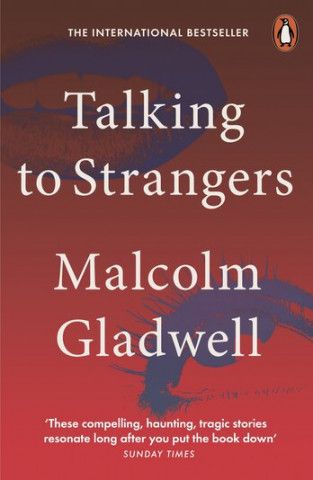In Talking to Strangers you will find yourselves deep diving into scandals across the world from espionage, to an American arrested for murder in Italy. Despite millions of years of adaptation, humans are bad lie-detectors. Especially when talking to strangers. You will learn, that often, the assumptions we make in our interactions with strangers may have devastating, life altering and even fatal consequences. Gladwell approaches this in a few different ways.
The default to truth theory: where humans lean into the idea that people are generally telling the truth when they are not. In the case of Ana Belén Montes, known as the Queen of Cuba, who infiltrated high ranks in the CIA and was accused of being a spy. When she denied it, they believed her. It wasn’t until the FBI found a shortwave radio that her Cuban handlers used to send her messages that she was caught.
Transparency and mismatching: where a person’s expressions often do not match their inner feelings. In the case of Amanda Knox, an innocent woman, charged with the murder of Meredith Kercher by Italian federals for appearing guilty in her demeanour. This is where our transparent and flat ideas of what guilty and innocent behaviour looks like can disserve us. Gladwell reminds us, this is not an episode of 'Friends', where an actor’s perfect expressions are so transparent, we know exactly what they are thinking and feeling.
Coupling: where people are bound to make assumptions by associating behaviour with a location. In the case of doctors who take advantage of their patients in consulting rooms. The doctors are often believed if they deny or manipulate the situation to justify their actions over their patient’s wellbeing.
Although this book tells a convincing story of people’s inability to discern what is truth, sometimes Gladwell tends to oversimplify complex issues by de-contextualising them. If he had acknowledged in some of the more prolific instances, such as the case of Sandra Bland or Emily Doe and Brock Turner, the dynamics of power or historical and cultural contexts in which they occurred, it may have been more insightful than miscommunications between strangers.
In the smaller cases that are explored in this book from Sylvia Plath’s death to The Kansas City policing experiments and the archetype of the 'Holy Fool' who has nothing to lose, there are incredible insights to draw from regarding how we form our opinions about the strangers we talk to.
‘We will never know the whole truth. We have to be satisfied with something short of that. The right way to talk to strangers is with caution and humility’.
You can find Talking to Strangers by Malcolm Gladwell at Greater Dandenong Libraries in paperback, eBook and Audiobook formats.
Aysha
